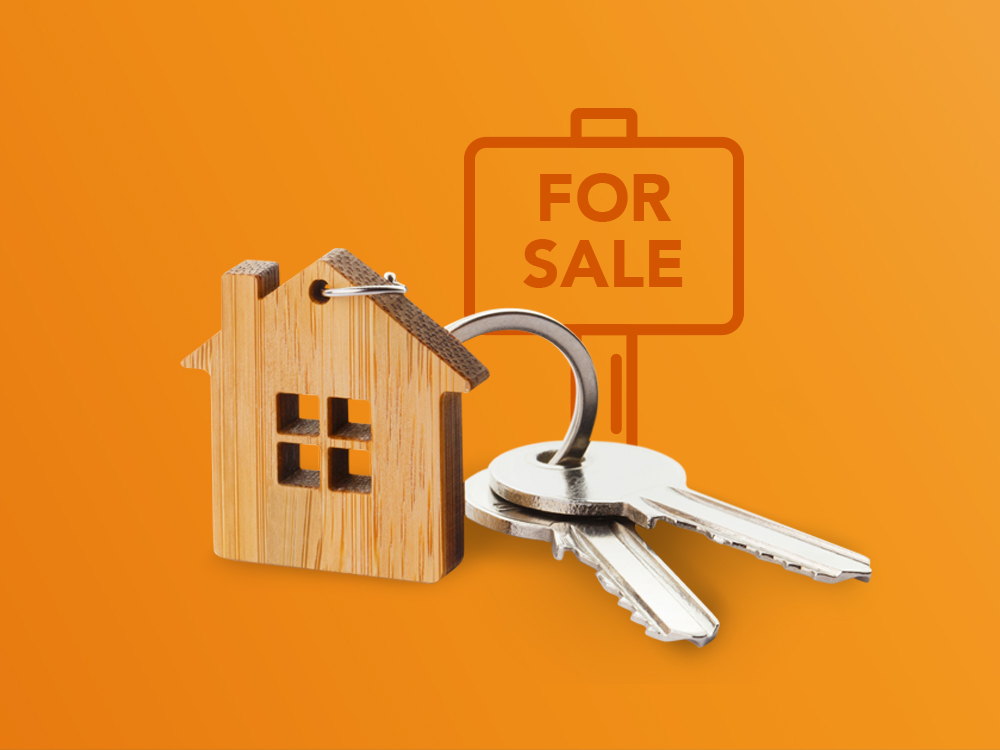On this page
Guide to selling a property To let or not to let? How to value your property for sale 1. Research recent sales and current asking prices in your area. 2. Invite at least three agents to view your property 3. Calculate what your property's features add to the valuation 4. How is your area changing? 5. Take your agent's advice Last thoughtsGuide to selling a property
In this guide we look at the fundamental principles of selling a property - how to value your property for sale, the advice to take, and how to get the most for your property.

To let or not to let?
If you have a tenanted property, you’ll need to decide whether to sell it tenanted or vacant. There are pros and cons to each side:
A tenanted property will appeal to other landlords, saving them time and effort in attracting new tenants. Since they’re probably experienced buyers, they can conclude a deal faster than non-professionals, chain-free.
On the other hand, tenanted properties involve more administration – tenancy agreements, Right to Rent records, gas safety certificates, inventories, deposits and (for the tenants) potential new reference checks and contracts. You’ll have to depend on the goodwill of the tenants when showing prospective buyers around.
To sell a buy-to-let property vacant will mean evicting current tenants, which generally takes at least two months unless you pay them compensation to move out earlier; you’ll probably need to spend time and money on redecoration, during which time you’ll not have any letting income.
On the plus side, you can attract a wider range of buyers and could get a higher valuation.
How to value your property for sale
The main valuation factors are square footage, the number of bedrooms and bathrooms, access to outside space, state of repair, level of noise and air quality in the street, transport connections and amenities such as parks, schools, shops and leisure facilities.
Here are five ways to translate these details into a viable figure, to attract the maximum interest in your property, without under-valuing it:
1. Research recent sales and current asking prices in your area.
Online agencies such as Zoopla and Rightmove provide instant listings of similar properties. Using their form, submit your post code, your number of bedrooms, type of property (house or apartment) and price bracket to see what’s on the market. The listings will show how long a property has been on sale and whether its price has been discounted. Look at the interior photography and floorplan to see how similar your property is to theirs.
Want to find out what your property is really worth? Read this article: Top 6 Websites that offer instant online UK property valuations.
The UK House Price Index from The Land Registry has recent selling prices, so also have a look at these. You may find that they’re lower than the prices listed online for similar properties – that’s because sellers often advertise higher prices than they eventually accept, or withdraw their sales altogether.
2. Invite at least three agents to view your property
There is now a sharp divide between online agencies such as Purplebricks and Yopa, who charge flat fees of as little as £999 to sell properties, and traditional high street agencies such as Foxtons, Savills and Bairstow Eves, which charge a percentage of the eventual sales price. Each offer distinct advantages to a home seller, so invite at least one from each side.
After showing them around, ask them to give you two quotes: the highest price that your property could be sold for, and the price that would attract the most attention from buyers. Then ask them about the merits of each. Pitching high is a sign of confidence, it may attract buyers who want a high-spec, modernised home they can move straight into, without having to refurbish.
“We see a lot of ‘mortgage rich’ buyers,” says Tom Cottrell of online agency Yopa, who works in North London. “Their banks will lend them enough to buy an expensive property, but they don’t have the cash to do it up.” A recent kitchen extension or top-end bathroom will save them trouble and encourage them to meet a high valuation. But too high and you may get no offers at all.
Pitch low and you could prompt a bidding war, with potential buyers submitting ‘best and final’ offers, leading to a sale above your original estimate.
Bear in mind that online agents charge their fees upfront, so they have less motivation to sell a property than traditional agents, who are only paid once they’ve made the sale. Aim to pay no more than 1 per cent of the property price to a High Street agency for sole representation.
3. Calculate what your property’s features add to the valuation
Compare your property to others locally and spot the differences. If a home has three bedrooms and is selling for £600,000, perhaps your four-bedroom home will sell for £800,000. A large garden (say 50 feet plus) can add 10 per cent to the selling price. Positives include recently-installed, energy-efficient heating systems, wooden flooring, original features such as fireplaces in older properties, high ceilings, new windows, generous storage, suitable space for an office, and a utility area. In combination, if you have several of these advantages compared with local sellers, you could value your property at a premium.
4. How is your area changing?
Buyers like to think they’re moving into an improving area, so make a list of any recent or expected changes. For example, Low Traffic Neighbourhood (LTN) schemes, which although controversial, have successfully calmed vehicle flows in many UK neighbourhoods. Estate agents now consider these areas highly desirable: safer, more pleasant, with lower noise and air pollution. Highly-regarded schools are magnets for parents with young children.
Equally, new retail or leisure developments create a sense of progress. If companies are prepared to invest, it encourages homebuyers to join in.
5. Take your agent’s advice
It’s tempting to aim for the stars when putting a value on your property. What you could do with that extra £100,000! Realistically, your life will be simpler and less stressful if you can conclude a relatively quick sale. You could also save money in fees and interest payments, especially if you’re buying somewhere else. The agent is probably already in touch with suitable buyers, so they know what people will pay.
Last thoughts
For some home buyers, emotions play a big part in their decisions. They react well to ‘kerb appeal’ – arriving at a property to find a tidy, well-kept front garden, freshly-painted windows and clean brickwork. Inside, consider ‘staging’ the property: feature designer furniture, luxurious fabrics and vases of flowers. In certain circumstances, this can add dramatically to the valuation. See ‘Million Dollar Listing’ and ‘Selling Sunset’ TV shows for inspiration.





